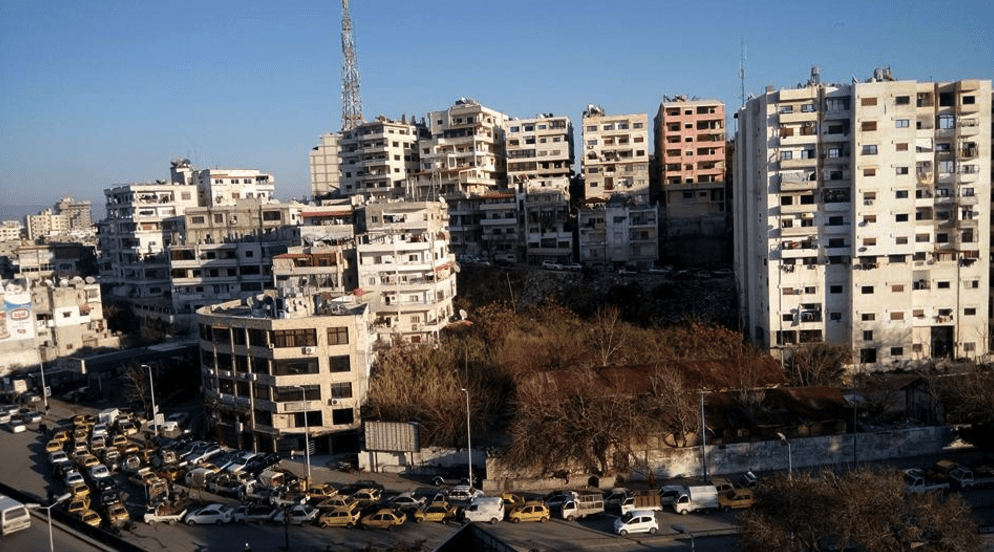Most public transport in Latakia suspended amidst fuel shortage, 2 bus lines reinstated after outcry
Public transportation services in the regime-held, northwest coastal city of […]
9 February 2017
Public transportation services in the regime-held, northwest coastal city of Latakia and its surrounding villages are now at a virtual halt because of a diesel shortage.
Public trains, buses and microbuses—white vans that seat about a dozen passengers—froze their operations last week because gas stations were “completely out of fuel,” Sarah, a government employee in Latakia city, tells Syria Direct’s Huda Abdelrahman.
In response to complaints from minibus drivers, government employees who couldn’t attend work and university students such as Maha who missed final exams, the Directorate of Transportation earlier this week picked two microbus lines to resume operations—one running 25km between neighboring Jableh and Latakia city, and a regular bus route inside the city near the university.
Syrian state media did not directly comment on the fuel scarcity, but the pro-regime Sham FM news outlet cited a “technical issue with fuel tankers” coming from the Homs oil refinery, quoting the director of Internal Trade and Consumer Protection of Latakia province, Ahmed Najam, as saying on February 5.
Approximately one month prior, on January 9, Islamic State fighters attacked a gas-manufacturing plant in Homs province, impacting fuel shipments to Latakia and increasing power outages, Syria Direct reported.

“We’ve been hearing rumors for three months that fuel tankers would arrive in Latakia to solve the crisis,” said government employee Sarah. “But nothing has changed, and we’re still waiting for the shipment.”
Maha, a student at Tishreen University in the Education Faculty, from Jableh, a town 25km south of Latakia city
Q: How has the lack of diesel affected you, a university student?
I missed two days of exams because I couldn’t find a ride to the university. One day, I came home crying because I missed an exam. I couldn’t find any form of transportation to the university.
[Ed.: Maha said that she will not be able to make up her exams, so she must re-take those classes next semester.]After a lot of residents complained, the Directorate of Transportation decided to employ one minibus line that runs between Jableh and Latakia, so students could attend class and state employees could go to work. But one minibus line isn’t enough, there are too many people.
If I want to take a minibus line to the city, I have to wake up in the early morning and wait at least two hours. Even then, I can’t guarantee a spot.
Q: So how are you attending classes? Do you have any alternative modes of transportation?
A few times, particularly on exam days, I had to take a private taxi and pay up to SP600 ($2.80) for a ride to Latakia, which is double the normal price. I usually tried to sleep over with a relative or friend, so I could get a spot on the minibus the next morning to return to Jableh.
Even the minibus driver is taking advantage of the crisis by raising the price.
Some of my friends who live in Latakia have started riding bicycles as an alternative to public transportation. Actually, a lot of students are doing this.
**
Sarah, a government employee at the Latakia Province Directorate who lives in a neighborhood near Tishreen University in Latakia city
Q: As a government employee, how has the suspension in public transportation affected you?
I had to miss work for two days because of a complete paralysis of the public transportation system. I waited for a bus for two hours and it never came. After the crisis worsened and residents became angry, the Directorate of Transportation allowed one bus line to operate—the Agriculture Line, which runs near Tishreen University.
Now, I have to wait for up to two hours for the bus, and when it comes it’s overflowing with passengers. Normally, a bus comes every half an hour.
Some government employees who live in the countryside are still missing work because this bus doesn’t pass through their towns—they’re completely isolated.
People are about to explode because of this situation. We don’t know when the problem will be solved.
Q: How has this diesel crisis affected residents? Are they buying diesel from gas stations?
At first, gas stations were completely out of fuel.
Then on Sunday, as a temporary solution, the Ministry of Oil began to distribute small, limited amounts of diesel to certain gas stations.
News spread quickly. Now, people wait in lines that sometimes stretch for two kilometers from the gas station. Most people arrive a day early to guarantee a spot in line. They spend the night in their cars, waiting. The gas stations are only allowed to sell a limited amount of fuel for each car—20 liters, which is good for 25km.
Those who want to circumvent the long lines, or fill their entire gas tank with diesel, have to pay large sums of money to security officers at the gas station.
If someone wants to buy diesel to run an electricity generator for his house, he needs security approval. He also has to bring the generator with him to the gas station to refill it.
Also, several bread ovens in the city have completely stopped running because of the lack of diesel.
Q: What do you think the solution to this fuel crisis is? Is there a solution?
We’ve been hearing rumors for three months that fuel tankers would arrive in Latakia to solve the crisis. But nothing has changed, we’re still waiting for the shipment. No one believes the government anymore.







